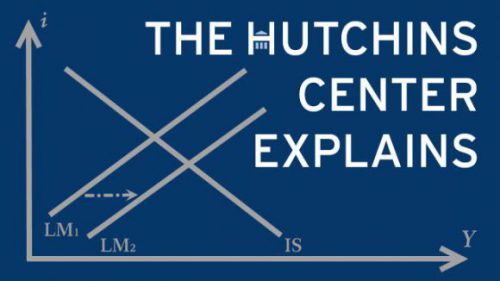A recent change to House rules requires the Joint Tax Committee (JCT) and the Congressional Budget Office (CBO) to use dynamic scoring—the practice of taking account for macro-economic effects—in calculating the official price-tag for certain major tax and spending bills.
To move beyond the debate over whether this is wise, and shed light on the way these important estimates are made, the Urban-Brookings Tax Policy Center and the Hutchins Center on Fiscal and Monetary Policy at Brookings will sponsor Dynamic Scoring: Now What? on Monday, Jan. 26. The event will feature, among other things, a presentation by JCT staffers on how they evaluated a recent major tax-reform proposal by former Rep. Dave Camp (R., Mich.) and responses by experts of different viewpoints as well as a panel on dynamic scoring of immigration, health-care, infrastructure, fiscal-stimulus and other non-tax legislations.
Below is a reading list of some of the recent congressional staff discussions of the issues surrounding dynamic scoring, and commentary by some of the panelists who will be at the January 26 event.
House Budget Committee
The Need For Macroeconomic Scoring (December 2014): The House Budget Committee’s justification for and explanation of the new ‘dynamic scoring’ rule.
Joint Committee on Taxation (JCT)
Macroeconomic Analysis of the “Tax Reform Act of 2014” (February 2014): A summary of JCT’s macroeconomic projection methodology and results of their macroeconomic analysis of former House Ways and Means Committee Chairman Dave Camp’s 2014 tax reform plan.
Testimony of the Staff of the Joint Committee on Taxation Before The House Committee on Ways and Means Regarding Economic Modeling (September 2011): A discussion of JCT’s conventional (micro) and dynamic (macro) projection techniques, along with examples of how they’ve implemented their dynamic analysis in the past.
Summary of Economic Models and Estimating Practices of the Staff of the Joint Committee On Taxation (September 2011): An overview of JCT’s projection models, with a description of each of their three macroeconomic models beginning on page 13.
Congressional Budget Office (CBO)
Estimated Impact of the American Recovery and Reinvestment Act on Employment and Economic Output in 2013 (February 2014): One of 15 of CBO’s macroeconomic analyses of the impact of the American Recovery and Reinvestment Act stimulus spending.
The Economic Impact of S.744, the Border Security, Economic Opportunity, and Immigration Modernization Act (June 2013): A summary of the macroeconomic effects of the proposed 2013 immigration reform bill.
Macroeconomic Effects of Alternative Budgetary Paths (February 2013): CBO’s analysis of the macroeconomic effects of three different budgetary paths. Appendix A provides an overview of CBO’s macroeconomic modeling methodology.
Cost Estimate of S. 2611, the Comprehensive Immigration Reform Act of 2006 (May 2006): A cost estimate of the Comprehensive Immigration Reform Act of 2006, with an 8-page analysis of the bill’s macroeconomic effects attached at the end of the document.
Macroeconomic Analysis of a 10 Percent Cut in Income Tax Rates (May 2004): An overview of CBO’s macroeconomic models, with an application to a hypothetical 10 percent income tax cut.
Selected writings of the panelists at the January 26 Hutchins Center/Tax Policy Center event
Len Burman, Tax Policy Center
Statement of Leonard E. Burman Before the House Committee on the Budget – Dynamic Analysis and Scoring (September 2006)
Jane Gravelle, Congressional Research Service
CRS Insights – Dynamic Scoring (January 2015)
Dynamic Scoring for Tax Legislation: A Review of Models (January 2014)
Alan Viard, American Enterprise Institute
Comment on Dynamic Economic Effects of a U.S. Corporate Income Tax Rate Reduction (January 2015)
Chye-Ching Huang
Budget and Tax Plans Should Not Rely on “Dynamic Scoring” (November 2014)
House “Dynamic Scoring” Rule Likely Will Mean More Tax Cuts – Not More Information (January 2015)
Donald Marron, Urban Institute
Immigration, Dynamic Scoring, and CBO (May 2013)
Jared Bernstein, Center on Budget and Policy Priorities
Ed Kleinbard Calls Out ‘Dynamic Scoring’ (January 2015)
Some Serious Nonsense on CBO from the WSJ (December 2014)
Douglas Holtz-Eakin, American Action Forum
The “Dynamic Scoring” Debate (October 2014)
The Brookings Institution is committed to quality, independence, and impact.
We are supported by a diverse array of funders. In line with our values and policies, each Brookings publication represents the sole views of its author(s).




Commentary
The Hutchins Center Explains: Dynamic Scoring
January 22, 2015